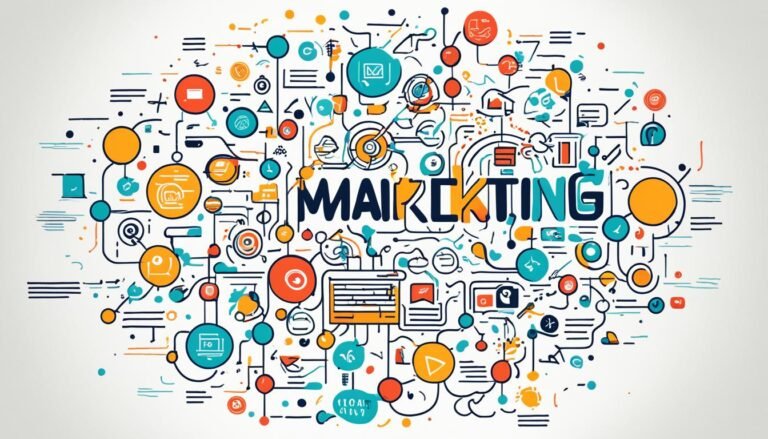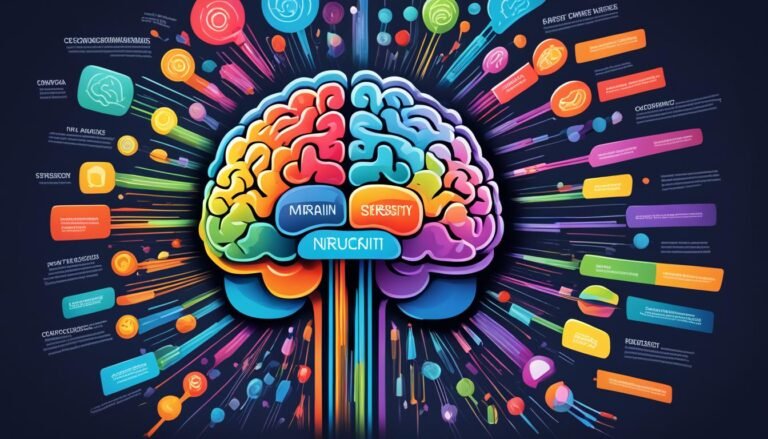Psychology of Online Shopping
Have you ever found yourself scrolling through endless product pages, unable to resist the allure of online shopping?
It's fascinating how our behavior changes when we enter the realm of virtual storefronts. From the power of visuals to the influence of social proof, the psychology behind online shopping is a complex and intriguing subject.
In this discussion, we will explore the various factors that drive our decisions in the digital marketplace, uncovering the secrets behind our impulse buying tendencies and the role of trust and security in our online transactions.
Prepare to discover a whole new world of consumer psychology that may forever change the way you approach online shopping.
Key Takeaways
- Visuals have a profound impact on consumer behavior in online shopping, as they are processed faster by the brain and are more likely to grab and hold consumers' attention.
- Social proof, such as influencer endorsements and online reviews, greatly influences consumer trust and purchasing decisions.
- The scarcity effect, created through limited-time offers and exclusive online deals, compels consumers to make quick purchasing decisions out of a fear of missing out.
- Personalization, through tailored promotions and product recommendations, enhances the online shopping experience and leads to increased engagement, conversion rates, and customer loyalty.
The Power of Visuals
The use of visuals in online shopping has a profound impact on consumer behavior and decision-making processes. Visuals have the ability to evoke emotions and create lasting impressions, making them an essential tool for marketers.
One of the key reasons visuals are so powerful is their ability to tap into the emotional appeal of consumers. Research has shown that emotions play a significant role in consumer decision-making, often influencing purchasing decisions more than rational factors.
Visual storytelling is a technique that combines the power of visuals with the art of storytelling to create a compelling narrative that resonates with consumers. By using visuals to tell a story, marketers can engage consumers on an emotional level, making the shopping experience more memorable and enjoyable. This approach has been proven to be highly effective in increasing brand awareness, building brand loyalty, and driving sales.
Studies have shown that visuals are processed by the brain faster than text, making them more likely to grab and hold consumers' attention. In fact, research has found that people remember 80% of what they see, compared to only 20% of what they read. This highlights the importance of incorporating visuals into online shopping platforms to effectively communicate information and leave a lasting impression on consumers.
The Influence of Social Proof
Visual storytelling isn't the only psychological tactic that marketers utilize in online shopping; another influential factor is the power of social proof. In today's digital age, consumers are bombarded with countless options and information when it comes to making purchasing decisions. With so much noise, it can be challenging for consumers to determine which products or brands are worth their time and money. This is where social proof comes into play.
Influencer marketing has become a popular strategy for brands to leverage social proof and increase their online sales. By partnering with influencers who've a substantial following on social media platforms, brands can tap into the trust and credibility that these influencers have built with their audience. When an influencer endorses a product or brand, their followers are more likely to perceive it as reliable and valuable. This can greatly influence consumer behavior and drive sales.
Social media endorsements are another form of social proof that can greatly impact online shopping. When consumers see their friends or people they admire endorsing a product or brand on social media, they're more likely to trust and consider purchasing it. This is because humans are inherently social beings and tend to rely on others' opinions and experiences when making decisions.
Research has shown that social proof has a significant impact on consumer behavior in online shopping. According to a study conducted by BrightLocal, 85% of consumers trust online reviews as much as personal recommendations. Furthermore, 72% of consumers stated that positive reviews increase their trust in a business. These statistics highlight the power of social proof in influencing consumer decision-making.
The Scarcity Effect
When it comes to online shopping, the scarcity effect plays a crucial role in influencing consumer behavior. Limited-time offers create a sense of urgency, pushing shoppers to make quick purchasing decisions. High demand products trigger a fear of missing out, compelling individuals to buy before stocks run out.
Additionally, exclusive online deals create a sense of exclusivity, making shoppers feel privileged and motivated to make a purchase. Understanding and leveraging the scarcity effect can help online retailers drive sales and increase customer engagement.
Limited-Time Offers
Limited-time offers have been shown to create a sense of urgency and scarcity, driving online shoppers to make quicker purchasing decisions. Scarcity marketing and urgency tactics are effective strategies employed by online retailers to increase sales and conversions.
Research has consistently demonstrated that limited-time offers, such as flash sales or countdown timers, can significantly impact consumer behavior. When faced with the prospect of a time-limited deal or a product in limited supply, individuals experience a fear of missing out (FOMO), which intensifies their desire to purchase.
This psychological phenomenon is rooted in the scarcity principle, which suggests that people value things more when they're perceived to be scarce. By leveraging limited-time offers, online retailers can tap into this innate human tendency and prompt consumers to act quickly, thereby boosting their sales and revenue.
High Demand Products
The scarcity effect is a powerful psychological phenomenon that drives online shoppers to quickly purchase high demand products. When consumers perceive a product to be in limited supply or high demand, they experience a sense of urgency and fear of missing out, which leads them to make impulsive buying decisions. This behavior can be attributed to the fear of regret and the desire to obtain a product that's perceived as rare or exclusive.
Research has shown that scarcity can significantly impact consumer behavior, leading to increased sales and higher prices for high demand products. For online retailers, creating a sense of scarcity through limited quantities, time-limited offers, or exclusive promotions can be an effective strategy to drive sales and boost revenue.
Understanding the scarcity effect and its influence on consumer behavior is crucial for online retailers looking to optimize their marketing strategies and maximize their profits.
Exclusive Online Deals
Exclusive online deals leverage the scarcity effect to drive online shoppers to make impulsive buying decisions. These exclusive offers create a sense of urgency and FOMO (fear of missing out), compelling consumers to act quickly. Research has shown that scarcity can increase the perceived value of a product, leading to higher purchase intent.
Online retailers often use tactics like limited-time offers, flash sales, and limited stock availability to create a sense of exclusivity and scarcity. Loyalty programs also play a crucial role in offering exclusive deals to loyal customers, further driving their engagement and purchase behavior.
The Role of Personalization
Personalization plays a crucial role in shaping your online shopping experience, influencing your purchasing decisions and overall satisfaction. When a website offers personalized features such as product recommendations, customized search results, and tailored promotions, it enhances your user experience by providing you with relevant and targeted information. Research shows that personalization leads to increased engagement, higher conversion rates, and improved customer loyalty.
Customization, a key aspect of personalization, allows you to modify products or services according to your specific preferences. This can range from choosing the color and size of a product to designing your own unique item. By giving you the ability to personalize your purchases, online retailers create a sense of ownership and uniqueness, increasing your satisfaction with the shopping process.
Furthermore, personalization can have a significant impact on your purchasing decisions. When you receive personalized product recommendations based on your browsing and purchase history, it helps you discover new items that align with your interests and preferences. This not only saves you time searching for relevant products but also increases the likelihood of making a purchase.
The Impact of User Reviews
User reviews have a significant impact on online purchasing decisions, influencing consumer behavior and shaping overall satisfaction. The impact of ratings can't be underestimated. Research suggests that consumers are more likely to purchase a product with higher ratings compared to those with lower ratings.
Positive reviews create a sense of trust and credibility, reassuring potential buyers that the product is of good quality. On the other hand, negative reviews have a strong effect on consumer decision-making. Studies show that even a single negative review can significantly decrease the likelihood of a purchase.
Consumers tend to rely on negative reviews to assess potential risks and drawbacks associated with a product. They fear wasting their money on a subpar product and prioritize the opinions of others who've already tried it. Negative reviews also provide valuable feedback for businesses, allowing them to identify areas for improvement and make necessary changes to enhance customer satisfaction.
The Psychology of Discounts and Sales
The impact of user reviews on online purchasing decisions extends to the psychology of discounts and sales. Consumers' behavior and satisfaction are influenced by pricing strategies and perceived value.
Discount psychology plays a significant role in shaping consumer behavior and decision-making in online shopping. Research has shown that consumers are more likely to make a purchase when they perceive a product to be on sale or available at a discounted price. This can be attributed to the psychological concept known as the 'anchoring effect,' where consumers use the discounted price as a reference point to judge the value of the product.
Moreover, sales influence consumer behavior by creating a sense of urgency and scarcity. Limited-time promotions and flash sales trigger a fear of missing out (FOMO) among consumers, leading them to make impulsive buying decisions. The perception of getting a good deal or saving money also contributes to a sense of satisfaction, which ultimately affects the overall shopping experience.
Retailers can leverage these psychological factors by strategically pricing their products, offering exclusive discounts, and creating a sense of urgency around sales events. Understanding the psychology of discounts and sales allows retailers to influence consumer behavior and maximize their sales potential in the online shopping realm.
The Role of FOMO (Fear of Missing Out)
FOMO (Fear of Missing Out) significantly influences consumer behavior and decision-making in online shopping, driving impulsive buying decisions and creating a sense of urgency and scarcity. This phenomenon is particularly evident in the realm of social media and travel.
- FOMO in social media: Social media platforms often showcase others' experiences, achievements, and possessions, creating a fear of missing out on exciting events or opportunities. Seeing friends' posts about their latest purchases or luxurious vacations can trigger a sense of envy and an urgent desire to keep up with them.
- FOMO in travel: The rise of travel influencers and the ability to document each moment on social media has fueled FOMO in the travel industry. Seeing stunning photos of exotic destinations or hearing about friends' memorable trips can generate a strong fear of missing out on life-changing experiences. This fear can push individuals to make impulsive decisions to book trips or participate in popular travel trends.
Research has shown that FOMO leads to increased engagement with online shopping platforms, as individuals strive to stay connected and be part of the latest trends. The fear of missing out on limited-time offers or exclusive deals creates a sense of urgency, driving impulsive buying behavior. E-commerce websites often leverage this fear by implementing countdown timers, limited stock notifications, or flash sales to create a perception of scarcity and encourage immediate purchases.
Understanding the role of FOMO in online shopping can help businesses develop effective marketing strategies that capitalize on consumer's fear of missing out, ultimately increasing sales and customer engagement.
The Impulse Buying Phenomenon
When it comes to online shopping, the impulse buying phenomenon is a topic that can't be ignored.
The instant gratification factor plays a significant role in driving impulsive purchases, as individuals seek immediate satisfaction and pleasure from their shopping experiences.
Research has identified various psychological triggers behind impulse buying, including limited availability, social proof, and the desire for novelty.
Understanding these triggers can help individuals develop effective impulse control strategies to resist the temptation of impulsive purchases and make more informed buying decisions.
Instant Gratification Factor
Impulse buying, driven by the desire for immediate satisfaction, is a well-documented phenomenon in online shopping psychology. The instant gratification factor can significantly affect consumers' purchasing decisions, leading to impulsive and unplanned purchases.
Research has shown that the lack of impulse control in online shopping can be attributed to several factors:
- Limited time offers and flash sales trigger a fear of missing out, compelling consumers to make spontaneous purchases.
- The convenience of one-click ordering and fast delivery options allows for instant gratification, reducing the time for rational decision-making.
- Social media influencers and persuasive advertisements create a sense of urgency and desire, encouraging impulsive buying.
- The ease of online shopping, with its seamless navigation and personalized recommendations, enhances the pleasure of immediate purchase satisfaction.
Understanding the instant gratification factor is crucial for both consumers and retailers to promote mindful and responsible online shopping behaviors.
Psychological Triggers Behind
The psychological triggers behind the impulse buying phenomenon can be analyzed through a data-driven approach, shedding light on the factors that drive consumers to make unplanned purchases online. Two key triggers that play a significant role in impulse buying are psychological pricing and emotional appeals. Psychological pricing refers to the use of pricing strategies that manipulate consumers' perception of value, such as setting prices at $9.99 instead of $10. This tactic creates a sense of affordability and encourages impulsive purchases. Emotional appeals, on the other hand, tap into consumers' emotions and create a sense of urgency or desire. For example, limited-time offers or flash sales trigger the fear of missing out, pushing consumers to make impulsive decisions. By understanding these triggers, online retailers can design strategies that capitalize on these psychological factors and increase their sales.
| Psychological Pricing | Emotional Appeals |
|---|---|
| $9.99 instead of $10 | Limited-time offers |
| Discounts and deals | Flash sales |
| Bundling products | Urgency cues |
| Free shipping | Scarcity tactics |
Impulse Control Strategies
To effectively combat the impulse buying phenomenon, retailers must implement strategic impulse control strategies based on analytical research and data-driven insights. Impulse control techniques can help consumers make more informed decisions and resist the urge to make impulsive purchases.
Here are four effective strategies to consider:
- Delayed Gratification: Encouraging customers to wait before making a purchase can help them evaluate their needs and prioritize their spending.
- Limited-Time Offers: Creating a sense of urgency by offering time-limited discounts or promotions can help customers think twice before making impulsive purchases.
- Clear Return Policies: Providing transparent and hassle-free return policies can alleviate the fear of making a wrong decision, giving customers more confidence to control their impulses.
- Personalized Recommendations: Tailoring product recommendations based on customers' browsing and purchase history can steer them towards more thoughtful purchases, reducing impulsive buying tendencies.
The Role of Trust and Security
Trust and security play a crucial role in shaping consumers' online shopping behavior. When it comes to online shopping, consumers need to trust that their personal information will be protected and that their transactions will be secure. Building trust is essential for businesses to establish long-term relationships with their customers and encourage repeat purchases. Online security measures, such as encryption and secure payment gateways, are key factors in building this trust.
A study conducted by Deloitte found that 91% of consumers are concerned about their online security when making purchases. This concern stems from the fear of identity theft, fraud, and unauthorized access to personal information. In order to address these concerns and build trust, businesses need to invest in robust security measures and communicate them effectively to their customers.
To give you a better understanding of the role of trust and security in online shopping, let's take a look at the following table:
| Trust and Security Factors | Impact on Consumer Behavior |
|---|---|
| Secure payment options | Increases confidence |
| Verified customer reviews | Influences purchasing decisions |
| Privacy policy and data protection measures | Builds trust |
As you can see, these trust and security factors have a direct impact on how consumers behave when shopping online. By prioritizing trust and security, businesses can create a positive shopping experience for their customers and encourage them to make more online purchases.
The Influence of Cognitive Biases
Cognitive biases have a significant impact on consumer decision-making when it comes to online shopping. These biases, which are inherent in the human brain, can lead to irrational and illogical choices. Understanding these cognitive biases can help both consumers and online retailers make more informed decisions.
Two important cognitive biases that influence online shopping are confirmation bias and the anchoring effect.
- Confirmation bias: This bias occurs when individuals seek out information that confirms their preexisting beliefs and ignore information that contradicts them. In online shopping, confirmation bias can lead to biased product reviews and selective attention to positive information, ultimately influencing purchase decisions.
- Anchoring effect: This bias refers to individuals relying heavily on the first piece of information they encounter when making decisions. In online shopping, the anchoring effect can be seen in the way prices are presented. For example, a higher initial price may make a discounted price seem like a better deal, even if the actual value isn't significantly different.
Understanding these cognitive biases can help consumers navigate the online shopping landscape more effectively. Online retailers can also use this knowledge to design their websites and marketing strategies in a way that minimizes the impact of these biases and promotes more rational decision-making.
Conclusion
Congratulations! You've just unlocked the ultimate secret to online shopping success. By understanding the psychology behind it, you can harness the power of visuals, leverage social proof, create a sense of scarcity, personalize the experience, tap into the influence of user reviews, exploit FOMO, and even trigger impulse buying.
Trust and security play pivotal roles in your decision-making process, while cognitive biases silently sway your choices.
So, go forth and conquer the online shopping world armed with this invaluable knowledge.
Happy shopping!







